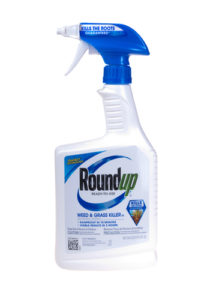Accounting Fraud
This archive displays posts tagged as relevant to Accounting Fraud. You may also be interested in the following pages:
May 20, 2016
The SEC announced a whistleblower award of more than $450,000 to be split between two individuals for a tip that led the agency to open a corporate accounting investigation and for their assistance once the investigation was underway. SECApril 19, 2016
Technology manufacturer Logitech International will pay a $7.5 million penalty for fraudulently inflating its fiscal year 2011 financial results to meet earnings guidance and committing other accounting-related violations during a five-year period. Logitech’s then-controller and then-director of accounting will pay collective penalties of $75,000 for violations related to Logitech’s warranty accrual accounting and failure to amortize intangibles from an earlier acquisition. The SEC also filed a complaint in federal court against Logitech’s then-CFO and then-acting controller alleging that they deliberately minimized the write-down of millions of dollars of excess components parts for a product for which Logitech had excess inventory. SECApril 14, 2016
The SEC announced fraud charges against the town of Ramapo, New York, the town’s local development corporation, and four town officials. The SEC alleges that Ramapo officials resorted to fraud to hide the strain in the town’s finances caused by the approximately $60 million cost to build a baseball stadium as well as the town’s declining sales and property tax revenues. They cooked the books of the town’s primary operating fund to falsely depict positive balances of between $1.4 million and $4.2 million during a six-year period when the town had actually accumulated balance deficits as high as nearly $14 million. In addition, because the stadium bonds issued by the Ramapo Local Development Corp (RLDC) were guaranteed by the town, certain officials masked an operating revenue shortfall at the RLDC such that investors were unaware the town would likely need to subsidize those bond payments and further deplete the general fund. SECMarch 10, 2016
Texas-based oil company Magnum Hunter Resources Corporation as well as two former senior officers and two consultants will pay $290,000 collectively to settle charges of deficient evaluation of, and failure to maintain control over, Magnum Hunter’s internal controls over financial reporting (ICFR) between December 2011 and September 2013. ICFR refers to a company’s process for providing reasonable assurance to the public regarding the reliability of its financial reporting. SEC rules require company management to evaluate and annually report on the effectiveness of ICFR, including disclosing any identified material weaknesses that create a reasonable possibility that the company will not timely prevent or detect a material misstatement of its financial statements. According to the SEC’s orders, Magnum Hunter enjoyed rapid growth in 2010 and significant acquisitions in 2010 and 2011 which strained its accounting resources. Despite assessments that there was inadequate control over the financial reporting process, a material weakness was not reported. SECMarch 9, 2016
The SEC charged California’s largest agricultural water district, the Westlands Water District, as well as its general manager and former assistant general manager, with misleading investors about Westlands’ financial condition in connection with a $77 million bond offering. The SEC’s order instituting settled administrative proceedings alleged that Westlands had agreed to maintain a 1.25 debt service coverage ratio. But when drought conditions reduced the water supply, preventing it from generating enough revenue to maintain the ratio, Westlands used extraordinary accounting transactions to reclassify funds from reserve accounts to record additional revenue. When the Westlands issued the $77 million bond offering in 2012 it represented to investors that it met or exceeded the 1.25 ratio for each of the prior five years. Absent the reclassifications and adjustments, Westlands’ ratio for 2010 would have been .11. Westlands and the charged managers agreed to pay $195,000 collectively to settle the SEC’s charges. SECWhistleblower hits big with SEC’s $80 million settlement over Monsanto’s “ultimate killing machine”
Posted 02/12/16
 Only a day after the SEC announced that agro-giant Monsanto would pay an $80 million penalty to settle charges of accounting improprieties in connection with sales of its flagship product Roundup, attorney Stuart Meissner has said that he represents the whistleblower who brought the matter to the SEC’s attention. If true, under the rules governing the SEC’s whistleblower program, Mr. Meissner’s client...
Only a day after the SEC announced that agro-giant Monsanto would pay an $80 million penalty to settle charges of accounting improprieties in connection with sales of its flagship product Roundup, attorney Stuart Meissner has said that he represents the whistleblower who brought the matter to the SEC’s attention. If true, under the rules governing the SEC’s whistleblower program, Mr. Meissner’s client...